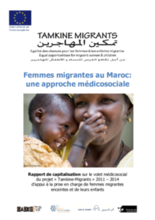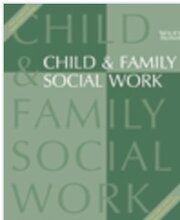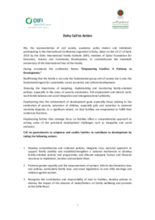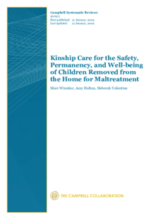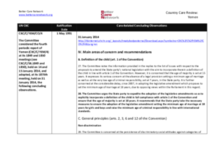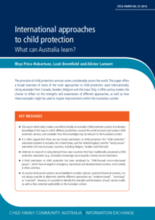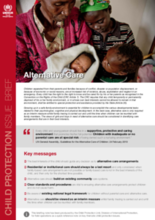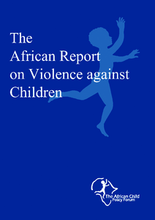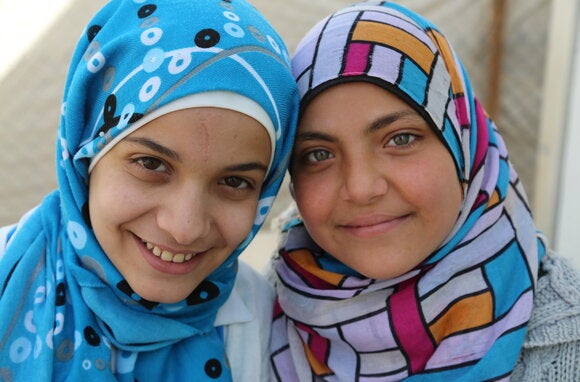

Displaying 271 - 280 of 307
Rapport de capitalisation sur le volet médicosocial du projet « Tamkine-Migrants » 2011 – 2014 d’appui à la prise en charge de femmes migrantes enceintes et de leurs enfants.
In this opinion piece, Sarah Sagley Klotz shares her experience of growing up in a small Christian community in the US, learning about the needs of the world from sermons and videos, and later fully realizing the hardships of vulnerable and orphaned children in the developing world through her travels to Mongolia and North Africa.
Many young people rely on their parents when they transition into adulthood. Young people transitioning out of alternative care rarely have that option.
This is a Call to Action issued by the Doha International Family Institute commemorating the International Year of the Family.
This systematic review published by the Campbell Collaboration reviewed controlled experimental and quasi experimental studies in which children removed from the home for maltreatment and subsequently placed in kinship care were compared with children placed in non-kinship foster care for child welfare outcomes in the domains of well-being, permanency, or safety.
This country care review includes the care related Concluding Observations adopted by the Committee on the Rights of the Child as part of its examination of the fourth periodic report of Yemen under the Convention on the Rights of the Child at its sixty-fifth Session (13 Jan 2014 - 31 Jan 2014).
This paper offers a broad overview of some of the main approaches to child protection used internationally. Using examples from Canada, Sweden, Belgium and the Gaza Strip, it offers policy-makers the chance to reflect on the strengths and weaknesses of different approaches, as well as how these examples might be used to inspire improvements within the Australian context.
This issue brief from the UNHCR highlights key messages from UNHCR in regards to alternative care, including the importance of making alternative care arrangements based on the best interests of the child and using residential or institutional care only as a very last resort.
This report, from the African Child Policy Forum, is aimed at informing and accelerating pan-African, regional and national efforts to prevent and respond to violence against children.
Près de 24 nouveaux-nés sont abandonnés quotidiennement au Maroc, selon la dernière enquête menée par l’association marocaine Insaf. Ce constat, pour le moins troublant, a été soulevé lors des débats programmés par le Salon de la petite enfance et de la kafala.

